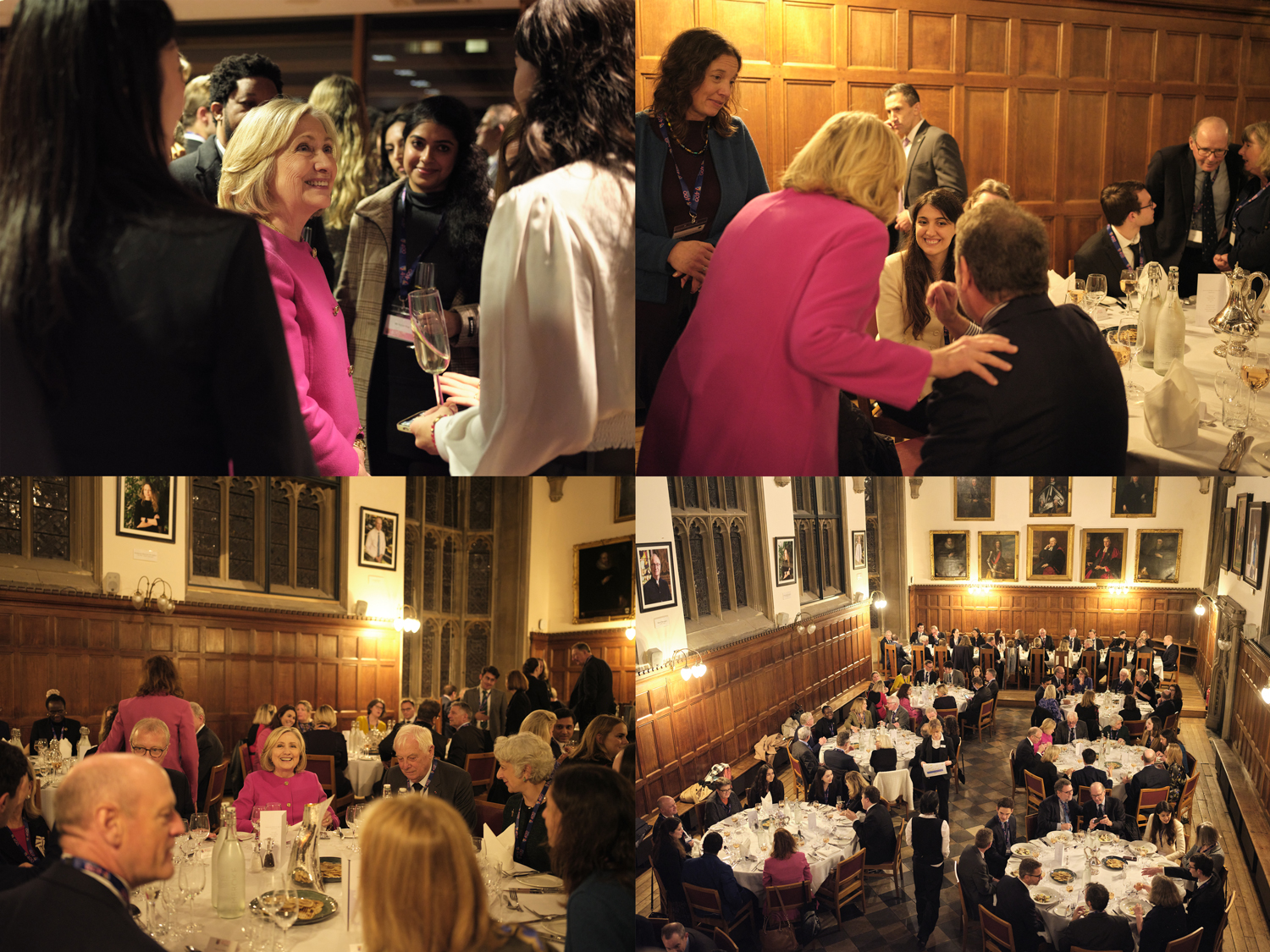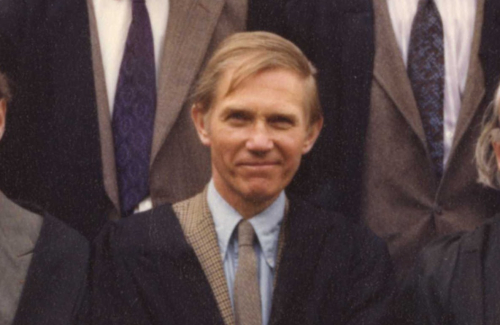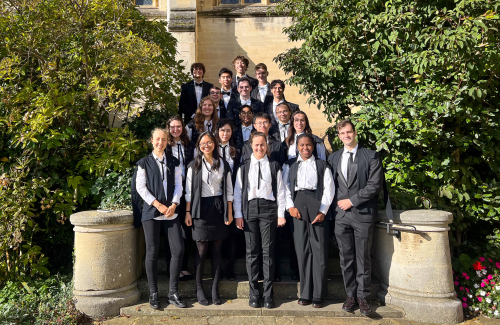More Pembroke news
Secretary Hillary Rodham Clinton Gives 2023 Blackstone Lecture at Pembroke College
NEWS |
On Tuesday 14th November, we welcomed Secretary Hillary Rodham Clinton as the guest speaker of Pembroke’s annual Blackstone Lecture, with this year’s discussion centring on ‘The Resolution of Conflict and Making Peace: The Role of Women and Human Rights’.
The Blackstone Society Lecture was established in 1976, before any similar event existed in the University of Oxford’s Law Faculty, with the aim of providing audiences with the thoughts of the most distinguished legal minds of the late 20th and early 21st centuries. This year, marking the 300th anniversary of Blackstone’s birth, it was an honour to see Secretary Clinton join the ranks of these esteemed speakers, as she shared her expertise from a decades-long career spanning both law and politics.
Joining Secretary Clinton on the panel for the Lecture were Pembroke fellows Professor Sandra Fredman and Professor Stephen Whitefield, alongside the Master, Sir Ernest Ryder. Before an audience of Pembroke students, fellows and alumni alike, as well as significant legal and political figures from outside of College, the panel engaged Secretary Clinton in discussion on a variety of topics, including political impunity, challenges to liberal democracy in the United States and further afield, women’s rights following COVID and the impact of overturning Roe v. Wade.
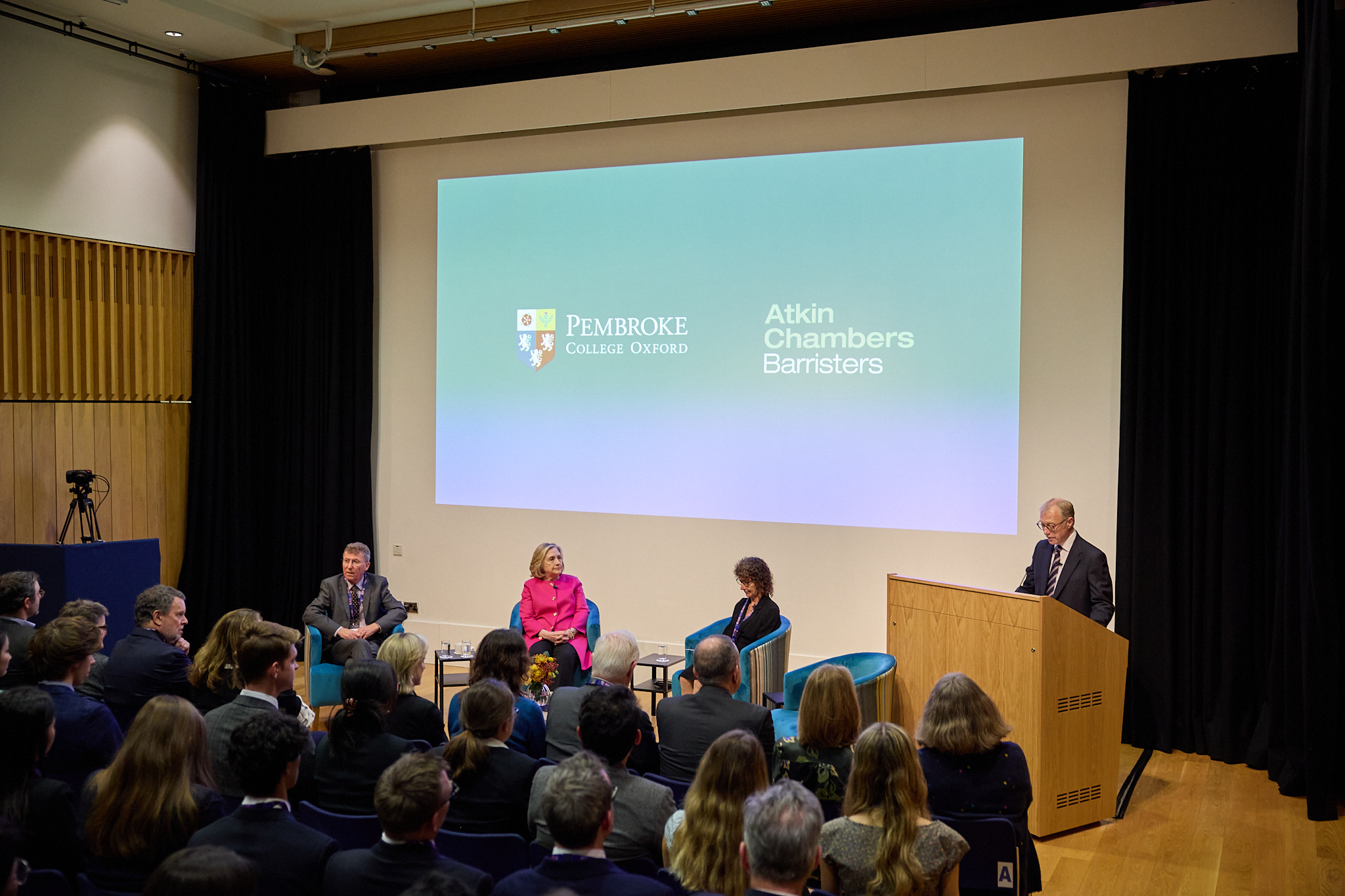
Professor Fredman has a background in Human Rights Law, which guided her questions on the threats to women’s rights today and the notion of women’s rights as human rights, in the words of Secretary Clinton’s famous phrase from the 1995 United Nations World Conference on Women. Regarding last year’s overturning of Roe v. Wade, she shared her view that while the right to abortion is the central concern of this overturning, “abortion is part of a much larger agenda, to impose political, partisan, cultural and religious views despite the will of the people.” She cited instances where states which “historically have been viewed as anti-abortion” are now voting to “enshrine the right of reproductive choice in their laws”, as has been most recently seen in Ohio. Beyond the current concern of reproductive choice, she also pointed to potential future instances where this “larger agenda” may interfere with existing laws, such as the prospect of overturning gay marriage or the decriminalisation of same-sex activity.
A further topic of discussion involved the idea of “hav[ing] women at every table”, the consideration of which Secretary Clinton added should not be limited to politics, but also extend into business, entertainment, academia, and beyond. In order to achieve this, she argued, women who have made it to the table “should be looking for ways to open doors so that more women, particularly young women, can find their way to that table as well.”
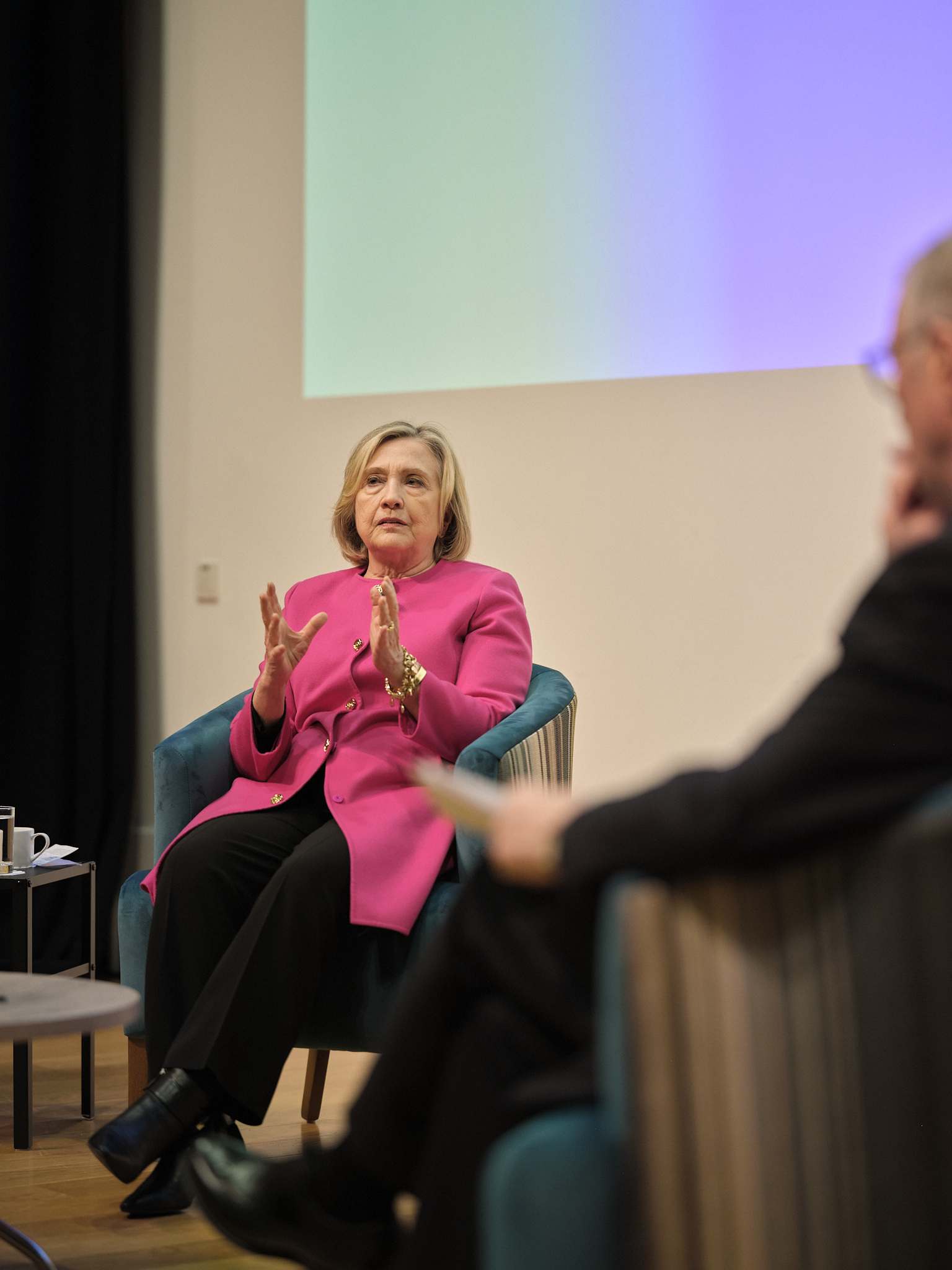
Following Professor Fredman’s questions, the panel turned to Professor Whitefield to lead a discussion, which, reflecting his background in Politics and International Relations, focused more on current threats to democracy and politics as a whole. The question of political impunity was put to Secretary Clinton, who gave the example of the United States judicial system’s current attempts to “pierce the impunity of Donald Trump”, which she cited as a “very challenging effort”. Though, she argued, they are “well-founded cases”, she suggested there are people who claim that it is “somehow inappropriate for a former president to be held accountable in this way.”
“I would argue that you’ve got to go back to first principles, back to Blackstone, […] the rule of law has to operate for everybody,” she said. Referring to her own time being investigated, she described the experience as “not pleasant”, knowing she had done nothing to warrant it, but stated that she had “never said [they] have no right to do that”. She stressed the importance of trying to “hold ourselves accountable” and “avoid impunity for anybody”.
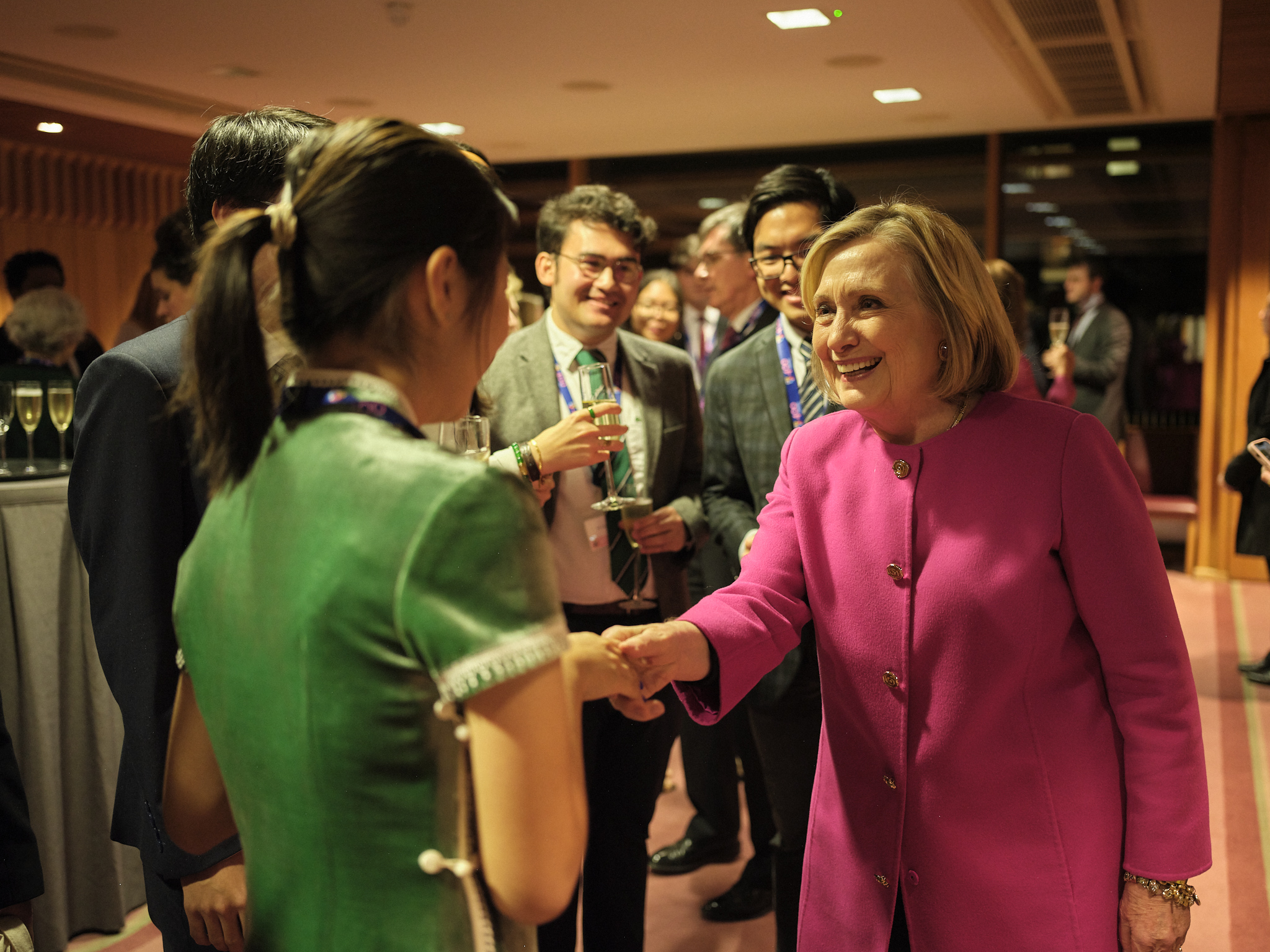
As the panel discussion came to a close, the talk moved into an audience question-and-answer in which the Master posed questions on behalf of students, including topics such as getting into politics, and the challenges of being a woman in politics. Students, academics and alumni were then invited to join Secretary Clinton for a drinks reception and dinner, during which she spoke to guests and displayed great interest in particular in the lives of current and past generations of Pembrokians.
It was an immense honour for our students, academics and alumni, as well as those guests invited from outside of Pembroke, to be able to engage in such an interesting and poignant discussion with so significant a figure in the current legal and political worlds. We would like to extend our deepest gratitude to Secretary Clinton for leading the 2023 Blackstone Lecture, and helping us to launch celebrations for Pembroke’s 400th Anniversary next year with this remarkable event.
This event was kindly sponsored by Atkin Chambers; we would like to express our thanks for enabling this event to happen.
The full discussion is available to watch below.
